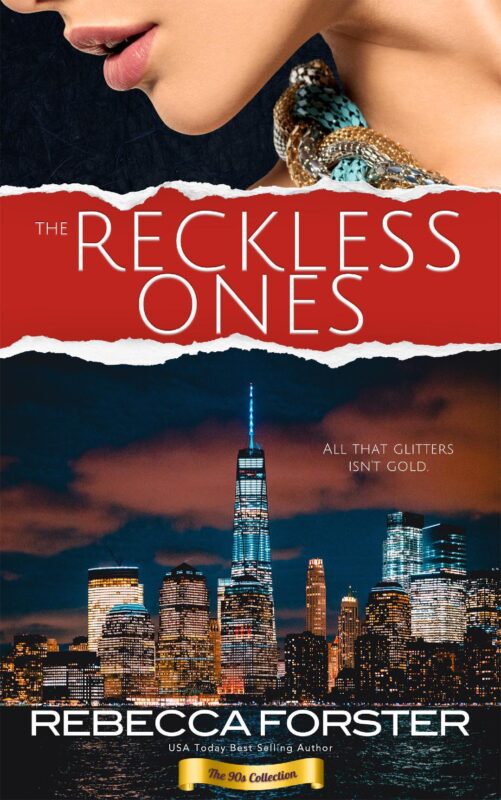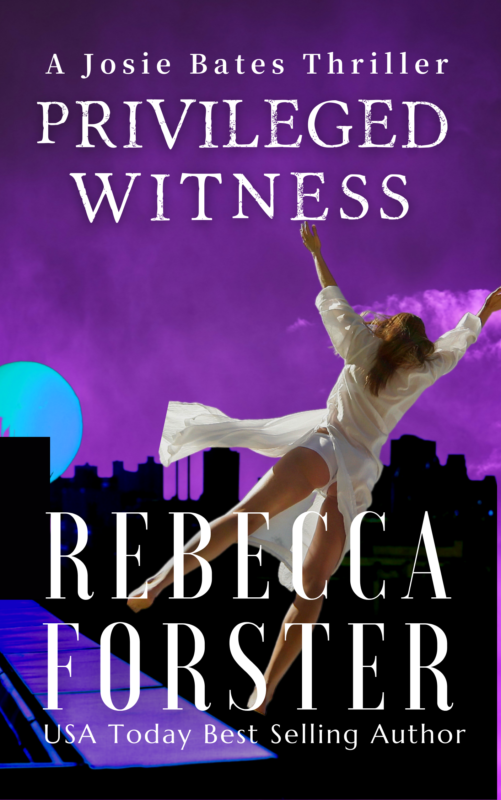Dana’s Reasons Why Not…
March 14, 2006 by A Slice of Orange in category Archives tagged as Motivational
By Dana Diamond
Excuses are like…well, you know…everybody has one and they all stink. Need I say more?
I have many, in fact…excuses, that is.
I’ll list them, not to make excuses, but, rather, to show you that I have them should I choose to use them…and so you know I’m not some “princess†with a housekeeper eating bon bons, lunching with ladies who…lunch, lounging by the pool, exercising when I feel like it and writing when inspiration strikes.
In addition to my day job (that’s really a 24/7 job) and family obligations, this year, I’m taking on a lot of new challenges:
– Secretary of Orange County’s chapter of RWA
– Writing a monthly article for Orange Blossom
– Weekly blog articles (for your viewing pleasure)
– Contributor to The Writer’s Vibe
And those are just the new professional challenges. I’m also killin’ myself on the treadmill every night after a full day of work, trying to rid myself of the muffin-top I acquired this holiday season. (I’m not vain, well, okay, I’m a little vain. But it’s also for health reasons and, frankly, I like being able to buy my clothes in the kids section. It’s cheaper.)
Anyway, on top of those new challenges I’ve added another book a year to my schedule. So…every single thing I listed keeps me from my goal of writing two books this year (instead of the one I wrote last year).
Still, I write. And I’m on track to finish.
So, I challenge you to stop making excuses. I’ll even help. Here’s a list of excuses and ways to combat them. I give you Dana’s Reasons Why Not…
1. My back hurts – Take an aspirin and get a heating pad.
2. My wrists hurt – Get iVoice or Dragon Naturally Speaking
3. My eyes hurt – Get some glasses or the above mentioned voice programs
4. I have to work – Write at lunch
5. I have kids – Write during naps and/or school.
6. I have to clean my house – Boring women keep clean houses.
7. School, kids, and work – Write one page a day. (Anybody can do that!)
8. Aliens abducted me – Surely they have a recording device you can speak into!
9. Stuck in traffic – Get a digital voice recorder and transcribe your work on weekends
10. I have stomach flu – This one may fly, but I admit, I once actually considered dragging my laptop onto the bathroom floor with me so I could write in between retch sessions.
11. I have a computer job and am too tired of looking at a computer in the evenings and on weekends. – Write longhand.
12. I have ten kids and a husband who doesn’t support me. – Divorce him and put your older kids to work for you. (Okay, for the record, I’m not in that position and that does seem harsh…even to my heartless soul.)
13. I’m exhausted – Leave you’re laptop on all night and write until you fall asleep and resume when you wake up at 4 a.m. (What? You don’t do that already?)
14. I’m training for the Olympics – An hour a day, that’s all I ask.
15. But I’m Michelle Kwan – You’re going to win anyway!
Now I ask you, what are your Reasons Why Not? If you post them, I’ll help you beat them.
Warmest Regards,
Dana Diamond
PS I wrote this last night. Today, I was chatting with my mentor about when I was going to get back to my YA that she’s been reading along as I write and was left dangling for a few weeks now. (Oh, the shame.) The story’s suspenseful and I’m leaving her on cliff-hangers, so she’s, understandably, a little ticked.
So, I give you a few new excuses…and how my mentor shot them down for me. (Oh, the hypocrisy!)
Mentor – “When am I going to see that next chapter?â€
Me – “I have to finish the final copy of the interview I just did, and then I need to transcribe the minutes from the board meeting this weekend, and then I have a critique project, but I’ll probably finish that by the end of this week and then I’ll—â€
Mentor – “Dana, you can do one page a day.â€
(Dude, I hate it when she’s right! Love you, Mentor!)
PPS I am still on track, damnit!
Dana Diamond is the OCC/RWA Secretary, contributor to the Orange Blossom Newsletter and The Writer’s Vibe Blog.
http://www.danadiamond.blogspot.com/
http://www.thewritersvibe.typepad.com/
The Seven Unhealthy Habits of Unhappy Writers
March 9, 2006 by A Slice of Orange in category Archives tagged as Motivational
Before you read on, please note that I am and have been guilty of these unhealthy habits. Let’s just dive in and get the pain over with:
1. Write to get published
2. Spend more time talking about writing than actually writing
3. Believe excuses as to why you never have time to write
4. Need the approval of others whether it is a contest judge, a “get-published-quick” seminar or a critique partner
5. Say “if I finish a book†instead of “when I finish the bookâ€
6. Can’t keep your behind in the chair, or worse, play online Mah-jong for “inspiration”
7. Give up too early
Write to get published
I know what you’re thinking. But trust me, I know what I’m talking about. Early in my career I was chasing my own tail by trying to write to sell. Bad idea. I should have been writing to uncover my voice. This realization happened after I had finished a book that I intended to sell as a category romance. Did it sell? Hell no. Did I want it to? Well, not really because it just didn’t feel right. Not that there’s anything wrong with category; it just wasn’t me. That’s when I realized that writers don’t get published because they created a story that fits the new trend everyone is buying. They are chosen because of their voice, their unique way of looking at and making sense of the world.
So how do you know when you’ve uncovered your voice? Two things. First, the story is true when it is so honest that someone could get hurt, or threaten to disown you.
Second, the writing is like typing an email to a friend … but with more drama and a liberal use of SpellChecker. I know the characters are real when it feels like they’re talking through me. By the way, that doesn’t happen all the time and it often happens when I’m doing other things like showering or feeding my son. However, in revisions it is much easier to tap into what I imagine is an underground river of words. Which is why I race as quickly as possible through the first draft so I can get to the good stuff.
Spend more time talking about writing than actually writing
That’s self explanatory so let’s move on.
Believe excuses as to why you never have time to write
I don’t buy this excuse. Sorry if I offend, but I’ve had the 12-hour job and I still wrote during my lunch hour and on weekends. For the past six months, I’ve been a stay-at-home-working mom. I write two to four hours a night (depending on how close I am to my deadline) and eight hours on the weekend. Before you plan to slash my tires at the next meeting I’ll admit that there are nights when I’m incapable of spelling my name, much less writing. But I cop to it and I’m getting better at outlining as well as carry a handheld tape recorder to capture ideas on the fly.
It all boils down to commitment.
Need the approval of others whether it is a contest judge, a “get-published-quick” seminar or a critique partner
This should be called the deadliest habit and this is why I firmly believe that all new writers should not jump into critique groups. It’s a tough line to walk because you have to hone your instincts and know when your voice clicks. On the other hand, we grow from constructive criticism. Experience has taught me if someone’s bringing you down, if they make you feel like they’re shoving a sock down your throat, walk away. I was a lone ranger for many years before I found my critique group just for that reason. By the time I found my critique group, I had three books under my belt.
If I still haven’t convinced you, let me put it this way: how many best selling authors have said that there was someone who told them they’d never make it? Just about every single one of them.
Say “if I finish a book†instead of “when I finish the bookâ€
Buddhists train for years, decades sometimes, on mastering the art of meditation, or quieting the mind. First they learn to breathe by counting each inhale and exhale. When you get that down, they learn to treat their thoughts like clouds in the sky and when they start thinking, they learn how to acknowledge the thought but pull away from it. A true master can go into a complete state of non-thinking and slow the breath down to an almost comatose state.
My point is that you take those principles and revise what you say to yourself. When you hear yourself saying, “it just isn’t good enoughâ€, or “I can’t get it to workâ€, or “that agent won’t listen to meâ€; acknowledge that you just said that and then turn around with a positive rebuttal: “it will be good enough if I work on itâ€, “I will get it to work by getting to know my character better†or “she’ll listen to me if I practice.â€
Can’t keep your behind in the chair, or worse, play online Mah-jong for “inspiration”
Discipline protects the talent. My very first mentor, Ben Masselink, said those words to me the last time I saw him. The book won’t get done unless you write it. There’s just no getting around it.
Give up too early
If you feel like you can’t type one more word, or that your work will never be good enough, think of what Wonder Woman would do. Do you think she’d give up while fighting for our rights in her satin tights? I was rejected 15 times before Hot Tamara sold. And guess what? I got the 16th the day after and the final 17th two weeks after the deal was reported in Publisher’s Marketplace (fools, all of them … ha ha ha!)
Oh sorry, did that come out?
If I had listened to those 15 rejections, that book would be in my closet and who knows where I’d be. (Oh that’s a scary thought, so let’s move on.)
Allow me to leave you with the Seven Healthy Habits of Happy Writers:
1. Writes to uncover voice
2. Makes time to write, rather than wait for the right time
3. Knows an excuse when she hears one
4. Listens to her instincts
5. Erases failure from her vocabulary
6. Exercises discipline to protect her talen
7. Has the courage to overcome and learn from rejection
Mary Castillo
Author of IN BETWEEN MEN, Avon Trade
and HOT TAMARA, Cosmo’s Red Hot Read April 05
Please visit http://www.marycastillo.com/
or http://www.marycastillo.blogspot.com/
Announcing the Winner of the 25 Days of Romance Contest…
March 6, 2006 by A Slice of Orange in category 25 Days of Romance tagged as Contest - 25 Days of Romance
Before we announce the two runners up and the winner, the Orange County Chapter of RWA would like to thank Mary-Theresa Hussey, Executive Editor for Silhouette, for agreeing to judge this contest! Mary-Theresa is always gracious and generous with her time, expertise and talent to help out our chapter, which is why the Orange County Chapter of RWA awarded her the very first Helping Hand Award.
Thank you, Mary-Theresa Hussey!
And now it’s time to announce the two runners up and the winner. Starting with the runners up first…
The 2nd Runner Up is…
MR. PERFECT by Dana Diamond!
The 1st Runner up is…
ROMANCE HEROES; ALWAYS THERE WHEN YOU NEED THEM by Michelle Thorne!
And now the winner is…
FAIRY TALES DO COME TRUE by Gillian Doyle!
Thank you all for submitting and reading the blogs, and for making the 25 Days of Romance a success! FAIRY TALES DO COME TRUE by Gillian Doyle will be recorded as a pod cast and the link to that will be posted on the OCC/RWA website by Saturday, March 25th.
Is That Clear?
March 3, 2006 by A Slice of Orange in category Archives tagged as Craft
As a young reporter, I used to whine that my editors “dumbed down†my writing when they traded big words for simple ones, broke up long sentences or otherwise made my writing clearer.
I’ve learned an important lesson since then.
Clarity is never dumb.
Clogged, jargon-filled writing is one of the biggest mistakes I find in professional communications today. The point of all writing is to convey a message. Yet the writing that comes out of businesses, schools and other institutions too often lacks a point, the messages weighed down under awkward phrases.
Take a look at the following sentence: The university seeks an increase in funds for the acquisition of periodicals in the library.
Now look at it this way: The university library needs more money to buy books.
Which one is better?
If you picked the first sentence, I’m not surprised. You have been trained to think that big words and long sentences sound professional.
In college, professors gave you minimum word and page requirements for your assignments, convincing you that good writing is long writing. That lesson is reinforced on the job, where you face reports and presentations full of acronyms, clauses and paragraphs that never end.
Hear me on this: Long writing does not make you sound smart. Nor does it make you sound professional.
It makes you sound scared.
Jargon and “bureaucratese†force readers to focus on your words, not your message. And when your message is cloudy, you fail as a writer.
Are you guilty of the heavy writing I’ve just described? No fear. Whether you realize it or not, you already know that simple is better.
Think back to those college days. When studying, did you highlight passages in your text books? You likely do the same thing today when you’re reading annual reports or memos from co-workers. That’s your mind telling you that not every single word you’re reading is crucial.
So, why waste time with words and sentences that aren’t necessary? It is better to make sure that every word you write is clear, precise and essential to your message.
Here are some tips to clarify your writing:
What’s the message?
Before you start writing, ask yourself a few questions. Who cares about this topic? Why should they care? What is the impact of this issue? What do you want people to do/think/feel after they read your words?
Questions like these will focus your writing on the most important points, which always adds clarity. They will also define your message and help you choose the perfect words.
Write like you talk.
You run into a colleague at the water cooler. She asks what’s new, and you say, “Due to a lack of funding, my plan to acquire an enhanced transportation method will have to be put on hold.â€
Translation: I don’t have enough money for a new car right now.
For some reason, people think that when they put a message in writing, they have to dress it up and bog it down. They’re wrong. Writing should sound like you. This is how you establish your voice – your unique view of an issue translated into the written word. It’s OK to have a voice, even in professional settings.
The key to writing like you talk is to actually talk while writing. Before you put fingers to keyboard, pretend you’re explaining the issue to your mother. Write it that way.
And, yes, the level of formality in your writing should reflect the audience. I would expect you to speak differently to the President of the United States than your mom. But don’t confuse formality with stiffness. You must still be clear, and your writing should still sound like you.
Presume ignorance.
Assume that your audience has little or no idea what you’re talking about; that your memo or report will be the first time they’ve ever heard of your topic. This is true even if you know that your audience are your colleagues, who are as well-versed and as well-educated as you are on your subject.
When writing, pretend you’re trying to explain this to a group of middle-schoolers. This ensures that you keep it simple, stick to the basics, and avoid the pitfalls of jargon. Define acronyms. Cite studies. Explain procedures and use short words.
I know, I know. The inner Ph.D in you is gasping in pain. How can she possibly show off all those years of college if she can’t use the jargon of her field? Tell her to shut it. She’ll be fine once she realizes that her message makes her sound smart; not her words.
Speaking of words… Shorter is better.
Look again at the two sentences above. We replaced “acquisition of periodicals†with “buy books.†We cut ten syllables to two.
You might argue that “periodicals†does not exactly mean “books.†You’re right. The point is that you can always find a simpler way to say things. As an added bonus, finding the simple way forces you to be as specific as possible. That’s always a good thing.
Get rid of jargon.
I’ve said a lot about the evils of jargon, which should have been a clue that it would eventually get its own section. Nothing grates my nerves as much as jargon. Amateur communicators think that jargon and overly technical writing makes them sound like an expert. Look how much I know about this! I can spew all these fancy words!
I argue the opposite. Jargon is a camoflauge for a lack of confidence in the message. How do you know if something is jargon? Ask yourself this: Does a reader need a degree in the subject matter to recognize the phrase? Could a reader with no background in this issue understand the word? If the answer is no, find another way to say it. (Again, think about how you would explain it to your mother.)
People especially rely on jargon when delivering bad news, as if the message is easier to take when couched under “tech speak.†Bad news is bad no matter how you say it. Readers (a broad term for your customers, co-workers, superiors, etc.) will know when you’re trying to pull one over on them, and they won’t appreciate it. Sales are down? Then just say it.
Take a cue from Winston Churchill. The news from France is bad.
Cut.
Mark Twain once mused, “I didn’t have time to write a short letter, so I wrote a long one.â€
Professional writers know what he means. The hardest part of writing is rewriting, and the hardest part of rewriting is cutting. You spend all that time putting the words down, and then you’re supposed to erase a third of them?
Yep. Writing is cruel.
But if you take it in steps, cutting doesn’t have to be so painful.
Start by looking for redundancies. Do you refer to an “advance plan� Just say “plan.†It means the same thing. How about “unexpected surprise� Aren’t all surprises unexpected? You’ll be amazed how many of these redundant phrases crop up in your work and weaken your message.
Next, condense or break up sentences. Read your work aloud. If you can’t finish a sentence without taking a breath, it’s too long. Either break it up into two sentences or shorten it. With paragraphs, a good rule of thumb is to not exceed a few sentences.
Finally, change passive to active voice. Not sure of the difference? Let’s look at some sentences again.
Passive: The man was bitten by the dog.
Active: The dog bit the man.
The first sentence is passive; the subject of the sentence (the man) is acted upon. An active sentence is one in which the subject acts upon something else. Turning your passive sentences into active ones will immediately make your writing sharper, warmer and more authoritative.
You can spot passive voice by the word “was†and by the use of “ing†words. She was dancing becomes She danced.
The proposal was approved by the city council becomes The city council approved the proposal.
Proofread beyond the spellchecker.
Township to hold forum on pubic safety.
If you caught the mistake in that sentence, I’m impressed. If you didn’t catch it, read it again. See it now? Didn’t know your local government was so concerned with your pelvic health, did you?
Too bad that real-life headline from my first newspaper job was supposed to say “public safety.â€
Few things can kill your message as quickly as typos. Don’t rely solely on the spellchecker to proofread your work. Print it out. Edit it. Then edit again.
Is that clear?
Good.
© 2004 Louise Knott Ahern
OCC member Louise Knott Ahern is a freelance journalist and public relations coach who writes contemporary romances. She’s the author of “Opting Out: A Career Woman’s Guide to Going Home Without Going Crazy,†a blog for mothers at http://www.optoutguide.blogspot.com/. She is also a contributor to The Writer’s Vibe (http://thewritersvibe.typepad.com/the_writers_vibe/), a blog for professional writers.
I Am A Stripper, Not A Porn Star!
February 28, 2006 by A Slice of Orange in category ArchivesBy Michelle Thorne
If you google Michelle Thorne you will get about 850,000 hits for Michelle Thorne, England’s most famous porn star, and about 5 for me, Michelle Thorne, Bookseller. I’m in a bad mood, and not because there are people who think I do vile things with lots of men in stories that have no plots, on film or more accurately on video. Every month about this time I do book returns. I decide what books have had enough time on my new shelves and what books will get a reprieve until next month. I really hate this part of my work, because I hate to destroy books. It is a bad thing. I know it’s wrong. I yell at customers just for opening a book too far and creasing the spine, but today I have to strip books.
Yes, I am a STRIPPER.
There is no way around it. I wish I could keep every book I order, forever. I can’t. I don’t enjoy stripping books, but to make room for next month’s books, I have to. Yes, I do get credit for the returned covers but it’s not that great for me financially either. I take at least a 10% hit every time I send a cover back. If I buy a $5.99 book, I pay 40% of the cover price or $3.59. When I send a cover back, I receive $3.00 in credit, for that same book, from my distributor (and not real money…Ingram bucks). 59 cents is gone like the proverbial wind. It may not sound like much, but multiply it by every book I buy and return every month. And get this…Ingram can decide not to give me credit or can drastically change the amount I get back from them in credit, at their discretion. That sucks, big time.
At BUB….123 I give the potential “Stripees†an extra month on a special shelf at 50% off (the same as I would get from Ingram, only in cash that I can spend.) That’s their last chance. Really! I try very hard to be careful when I order, but sometimes I just don’t get it right. Many of the times I don’t get it right is when I have an Author Autographing. I can never be sure if I have under ordered and will sell out, or if I have over ordered and I have a table full of books left at the end of the day. I always offer the books to the Authors at cost, so I don’t have to strip them. Authors always have to get books for contests, their relatives or donations. If you buy them from me you get your royalties, a discount and no books will die that day. Authors, don’t forget to sign stock even if you don’t buy your books, I always have a harder time returning a signed book, but I can do it. Buy your books when you can, but I’ll understand when you can’t. Like I know you’ll understand when I have to do returns. Don’t hate me because I strip, It’s not like I do porn.
Michelle Thorne
Bearly Used Books…123
Home of A Great Read
123 So. First Street
La Puente, CA 91744
(626) 986-3700
Affiliate Links
A Slice of Orange is an affiliate with some of the booksellers listed on this website, including Barnes & Nobel, Books A Million, iBooks, Kobo, and Smashwords. This means A Slice of Orange may earn a small advertising fee from sales made through the links used on this website. There are reminders of these affiliate links on the pages for individual books.
Search A Slice of Orange
Find a Column
Archives
Featured Books
THE RECKLESS ONES: The 90s Collection
All that glitters isn't gold.
More info →FREYA Viking Glory Book Two
What happens when an immovable object meets an unstoppable force? Sparks fly and love blooms.
More info →BECKONED, PART 5: ADRIFT IN COSTA RICA
How do you heal a broken heart?
More info →PRIVILEGED WITNESS
The beautiful wife of a senate candidate is dead; his disturbed sister is accused.
More info →Newsletter
Contributing Authors
Search A Slice of Orange
Find a Column
Archives
Authors in the Bookstore
- A. E. Decker
- A. J. Scudiere
- A.J. Sidransky
- Abby Collette
- Alanna Lucus
- Albert Marrin
- Alice Duncan
- Alina K. Field
- Alison Green Myers
- Andi Lawrencovna
- Andrew C Raiford
- Angela Pryce
- Aviva Vaughn
- Barbara Ankrum
- Bethlehem Writers Group, LLC
- Carol L. Wright
- Celeste Barclay
- Christina Alexandra
- Christopher D. Ochs
- Claire Davon
- Claire Naden
- Courtnee Turner Hoyle
- Courtney Annicchiarico
- D. Lieber
- Daniel V. Meier Jr.
- Debra Dixon
- Debra H. Goldstein
- Debra Holland
- Dee Ann Palmer
- Denise M. Colby
- Diane Benefiel
- Diane Sismour
- Dianna Sinovic
- DT Krippene
- E.B. Dawson
- Emilie Dallaire
- Emily Brightwell
- Emily PW Murphy
- Fae Rowen
- Faith L. Justice
- Frances Amati
- Geralyn Corcillo
- Glynnis Campbell
- Greg Jolley
- H. O. Charles
- Jaclyn Roché
- Jacqueline Diamond
- Janet Lynn and Will Zeilinger
- Jeff Baird
- Jenna Barwin
- Jenne Kern
- Jennifer D. Bokal
- Jennifer Lyon
- Jerome W. McFadden
- Jill Piscitello
- Jina Bacarr
- Jo A. Hiestand
- Jodi Bogert
- Jolina Petersheim
- Jonathan Maberry
- Joy Allyson
- Judy Duarte
- Justin Murphy
- Justine Davis
- Kat Martin
- Kidd Wadsworth
- Kitty Bucholtz
- Kristy Tate
- Larry Deibert
- Larry Hamilton
- Laura Drake
- Laurie Stevens
- Leslie Knowles
- Li-Ying Lundquist
- Linda Carroll-Bradd
- Linda Lappin
- Linda McLaughlin
- Linda O. Johnston
- Lisa Preston
- Lolo Paige
- Loran Holt
- Lyssa Kay Adams
- Madeline Ash
- Margarita Engle
- Marguerite Quantaine
- Marianne H. Donley
- Mary Castillo
- Maureen Klovers
- Megan Haskell
- Melanie Waterbury
- Melisa Rivero
- Melissa Chambers
- Melodie Winawer
- Meriam Wilhelm
- Mikel J. Wilson
- Mindy Neff
- Monica McCabe
- Nancy Brashear
- Neetu Malik
- Nikki Prince
- Once Upon Anthologies
- Paula Gail Benson
- Penny Reid
- Peter Barbour
- Priscilla Oliveras
- R. H. Kohno
- Rachel Hailey
- Ralph Hieb
- Ramcy Diek
- Ransom Stephens
- Rebecca Forster
- Renae Wrich
- Roxy Matthews
- Ryder Hunte Clancy
- Sally Paradysz
- Sheila Colón-Bagley
- Simone de Muñoz
- Sophie Barnes
- Susan Squires
- T. D. Fox
- Tara C. Allred
- Tara Lain
- Tari Lynn Jewett
- Terri Osburn
- Tracy Reed
- Vera Jane Cook
- Vicki Crum
- Writing Something Romantic
Affiliate Links
A Slice of Orange is an affiliate with some of the booksellers listed on this website, including Barnes & Nobel, Books A Million, iBooks, Kobo, and Smashwords. This means A Slice of Orange may earn a small advertising fee from sales made through the links used on this website. There are reminders of these affiliate links on the pages for individual books.











































